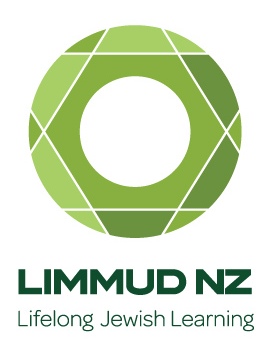NZFOI: Nice to see Stuff publishing a balancing opinion piece after David Galler’s naive views were published yesterday. Next time, we wonder if Stuff will publish the pro-Israel opinion article first? Here is Juliet Moses’ views on NZ media’s treatment of the current conflict.
A few days ago I rang my friend, who lives in Tel Aviv, to see how he was doing during this latest round of war between Hamas and Israel, which has seen over 3000 rockets fired at Israel from Gaza, and some from Syria and Lebanon. “Are you going out at all?” I asked. “Sure”, he answered nonchalantly, “I took my son to the playground today. There’s a bomb shelter built into it – we have 15 seconds to get in when the siren goes off”.
My friend worked on the Israeli negotiating team trying to achieve peace with the Palestinian people. He has Palestinian friends. He does not support the Israeli Prime Minister.
Dehumanising an entire nation and its supporters, who just happen to be the vast majority of Jews, is perpetuating injustice and oppression, not fighting it. The Israel I see portrayed in the media, by politicians, and by others, is not the Israel I know and love.
It has become detached from reality and context, an abstraction, caricatured, villianised, a symbol of what’s wrong in the world, a repository for a person’s woes, an ideological flag-post. It seems we need a “narrative” these days, with a goodie and a baddie. Israel isn’t a narrative, and like every other nation, it encompasses people who are somewhere inbetween.
I think of the staff I met at Zvi hospital near the Syrian border in 2016, who were treating Syrians injured in Syria’s civil war.
I remember George Deek, the young Christian Arab diplomat taking me around Jaffa, where his family has lived for over 300 years, including to a beautiful Ottoman Empire mosque.
I still salivate when I think of the traditional lunch, chicken maqlooba, we had in a Druze family’s home in the Golan Heights. And that reminds me of the same dish I enjoyed visiting a non-profit centre set up for Bedouin women in the Negev.
I think of Ikey, recounting the gripping fear he felt in the lead-up to the 1967 war, when he was a young boy and Israelis thought the state was about to be wiped out by invading Arab armies, being told to collect stones and whatever projectiles he could and go up to the roof.
I think too of the Palestinian people I have spent time with in the West Bank.
I’ve met many politicians, including the Palestinian Prime Minister. But the person who had the most profound impact on me was Ali, who I have met with twice. He co-founded, with a Jewish man, “a grassroots movement of understanding, nonviolence and transformation among Israelis and Palestinians”.
Ali told me that both Jews and Palestinians must realise that the land does not belong to them, but they belong to the land. He recognised that his people’s identity is rooted in victimhood, and that needed to change.
I also dined near Bethlehem with an Israeli and Palestinian, who are part of a “parents’ circle”, who each lost a daughter in the conflict. They call each other “brother”.
I think of the female Palestinians – the journalist who bemoaned the deteriorating freedoms, lack of elections, and corruption under Fatah’s leadership, and the activist who was concerned about the regression of women’s rights.
There’s Palestinian billionaire Bashar Masri who is building the first planned Palestinian city in the West Bank, Rawabi, hailed as “the cornerstone of a new, modern, viable Palestinian society”. He believes Palestinians must show the world that they are not just victims and can build a state. He abhors the fact that the Palestinian Authority leaves its people living under its control in refugee camps.
And I remember the Gazans I met who worked at the border crossing, who talked of how much they despised Hamas, the terrorist group that oppressively rules Gaza.
Most Jews and Israelis yearn for peace, and want to see Palestinians have their own state. But Jewish people carry both the scars of a world without a Jewish homeland and the knowledge that it has provided refuge for millions of Jews from a post-Holocaust Europe, Iraq, Iran, the Soviet Union, Yemen and Ethiopia.
Israelis also carry the scars of the second intifada, which followed failed peace talks, when they sent their children off to school in separate buses in the hope that at least one wouldn’t return in a body bag (the Palestinian people still pay the price too, with a security barrier and checkpoints that were not there before).
Israelis carry the scars too of Israel’s unilateral withdrawal from Gaza in 2005, displacing 8000 Jews from their homes, in the hopes of peace, which brought them a terror state and the rockets they are bombarded with. That is not a risk they can take with the West Bank, and so the status quo remains, even though pretty much no one likes it.
Despite being a majority in Israel, its Jews have the mindset and anxieties of a minority, given their neighbours. In a state one half the size of Canterbury, their margin of error and survival is very small. Standing at the borders with Gaza, Lebanon, and Syria, all controlled by Iran and embedded with its proxies, who repeatedly call for the destruction of Israel, this is easy to understand.
Indeed, only someone who has the privilege of not living that way and who has no empathy, could fail to understand that. It is easier to be moralistic when your life is not at stake. That includes some Jews who feel the need to apologise and proclaim that they are one of the few “good Jews”. Other Jews, however, have learned that appeasement doesn’t work.
- Juliet Moses is spokesperson for the New Zealand Jewish Council.
- Source






Speak Your Mind